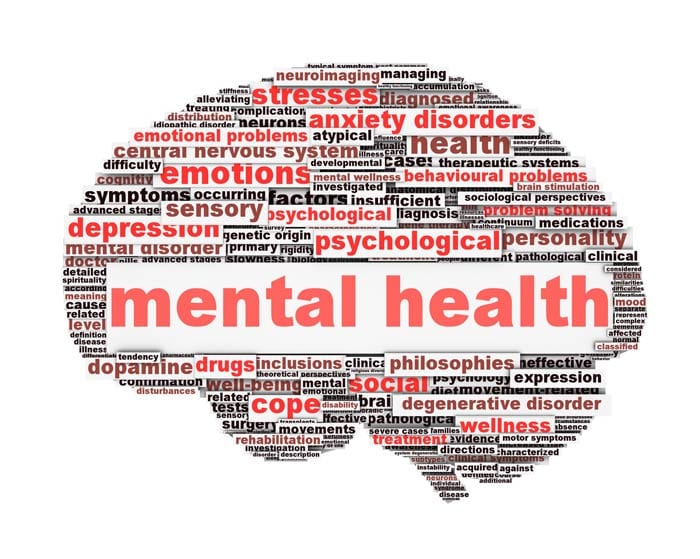Prime
Feeling hopeless? How can we fight suicidal thoughts?

When people known to be active, suddenly become withdrawn and isolated, talk to them. They could be depressed. PHOTO/NET
What you need to know:
A parent who forces their child to be something they are not, one who is overly critical of their child, a parent who uses derogatory language towards their child, might exasperate them to commit suicide.
A video clip of a woman jumping off a building went viral this month. Apparently, a one Monica Karungi, alias Monna Kiz, a 24-year old from Isingiro District, who was working as a maid in UAE, jumped to her death from the ninth floor of a 12-storeyed building.
Some sources quoted in the media, reported that Karungi committed suicide because her boyfriend back in Uganda had misused her money. Others hinted on depression and mistreatment at her place of work.
It was a graphic clip that traumatised me. It takes a broken heart to do what she did. As a parent and as one who has ever lost a youthful uncle to suicide, this story touched me deeply.
According to World Health Organisation, suicide was the fourth leading cause of death among 15-19 year olds globally in 2019. While Uganda is in the 68th position, the suicide prevalence stands at 9.9 percent according to WHO estimates of 2018, higher than the national HIV prevalence rate of 6.2 percent of the same year.
Symptoms
Ordinarily, people known to be active, suddenly become withdrawn and isolated. Some start having obsessive talk of wanting to die, feeling unimportant, useless and a burden to others. Others become irritable, suffer from anxiety, extreme mood swings, hallucinations and delusional behaviour.
Some people suddenly pick interest in stashing away drugs, knives and potentially harmful tools. Neglect of personal grooming, taking reckless risks, sudden generosity and giving away personal properties,increase in drug and alcohol usage and loss of appetite are all symptoms of looming suicide.
Drugs and substance use
Some youth experiment with drugs and alcohol. Others use them when they are going through depression, unaware that they can have a mind-altering effect on their choices. According to recent studies, alcohol and drug dependence have been known to account for about 50 percent of all suicides.
Depression
This is a mental disorder that affects how one thinks, acts and behaves. On April 10 last year, www.eyewitnessug.com quoting members of Parliament on the Committee of Gender, Labour, and Social Development, reported that 35 Ugandan girls working in Middle East countries committed suicide, after they were subjected to torture by their employers.
Depression also arises out of emotional challenges. According to a study by www.cambridge.org, Suicide among Ugandan university students: evidence from media reports for 2010 and 2020, relationship problems were the main reason for suicide.
Young people do not know their ropes around emotional difficulties such as rejection, disappointment and embarrassment, so a heartbreak can end up causing one to take their life.
Societal expectations
Society expects a lot from us. That is agreeable. For instance, parents expect their children to perform well in class. But not every child will be a stellar academic performer. We are as different as chalk and cheese. On Wednesday July 21, last year, Daily Monitor reported that Daphine Kimuli, a 15 year-old, committed suicide, after her friends humiliated her for performing poorly in Primary Leaving Examinations.
A parent who forces their child to be something they are not, a parent who is overly critical of their child, a parent who uses derogatory, demeaning language towards their child, might exasperate them to commit suicide.
How then do we prevent suicide?
Parents should build relationships with their children to enable them to open up on any matter. Be a keen observer of your children and listen to issues they present. Let them know they can talk to you anytime they want to. If a child comes off as withdrawn yet they have been outgoing, this might be an indicator that all is not well. If you cannot counsel them, seek professional help for them.
Teach children to value life
Tell them to keep away from alcohol and drugs and other life-harming substances. Tell them to look after their bodies by way of physical exercises and good feeding. Exercising half an hour daily, even by walking a few times a week, has been found to release endorphins--the body’s pain and stress relievers--hence making one feel good.
Culture as a deterrent
In most Ugandan cultures, a person who commits suicide is buried dishonourably. For instance, in Buganda, a person who commits suicide is accorded a disgraceful funeral; there is no mourning, speeches, prayers, or food. They are caned by their maternal cousins before they are buried directly under the very spot where they hanged themselves (unless it is a rented place). They are not buried in a coffin and their body is not be washed. After this indecent burial, an alarm is raised and people are supposed to flee from the unfortunate home without looking back.
Social support system
Children need a supportive family, teachers, peers and good role models, to help them deal with emotional issues. Limit social media usage for your children. As they grow older, you can allow them more freedom.
Christian faith is against taking of one’s own life because life comes from God. Prayer, fellowship, sharing with one another, can help someone against feeling hopeless and depressed.




